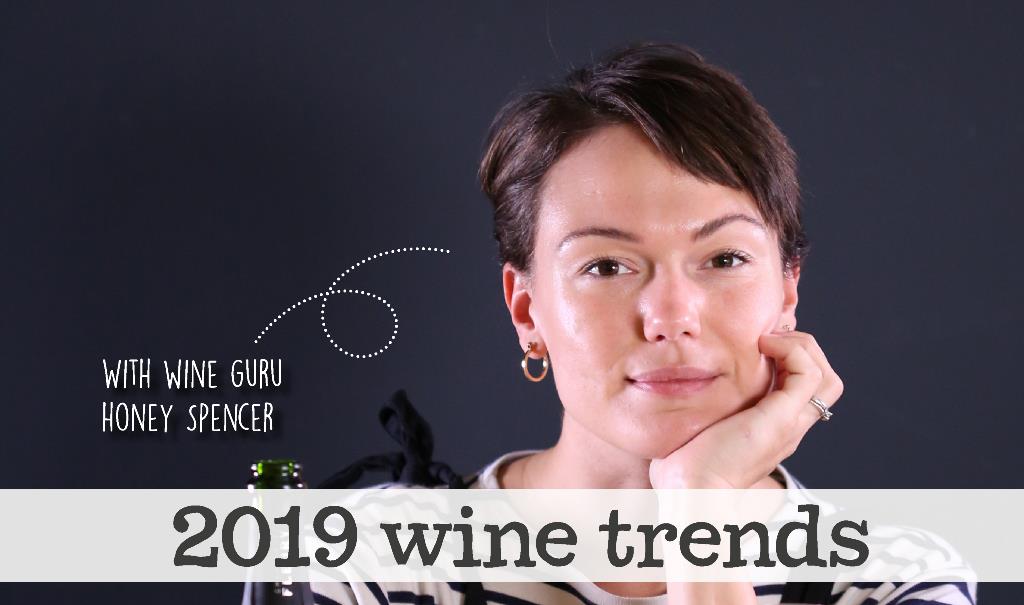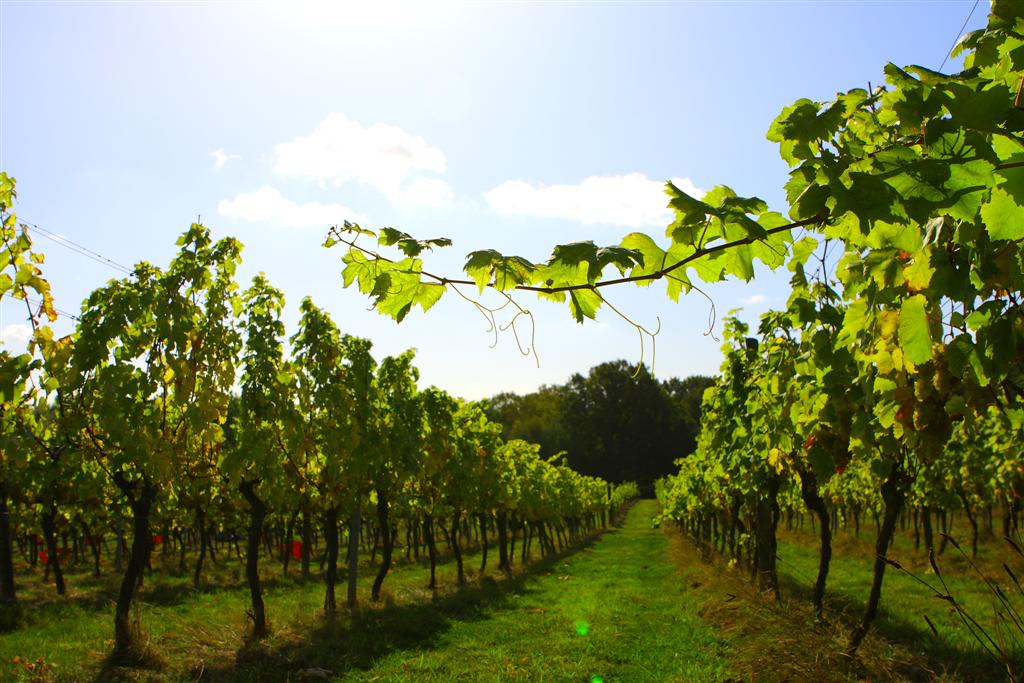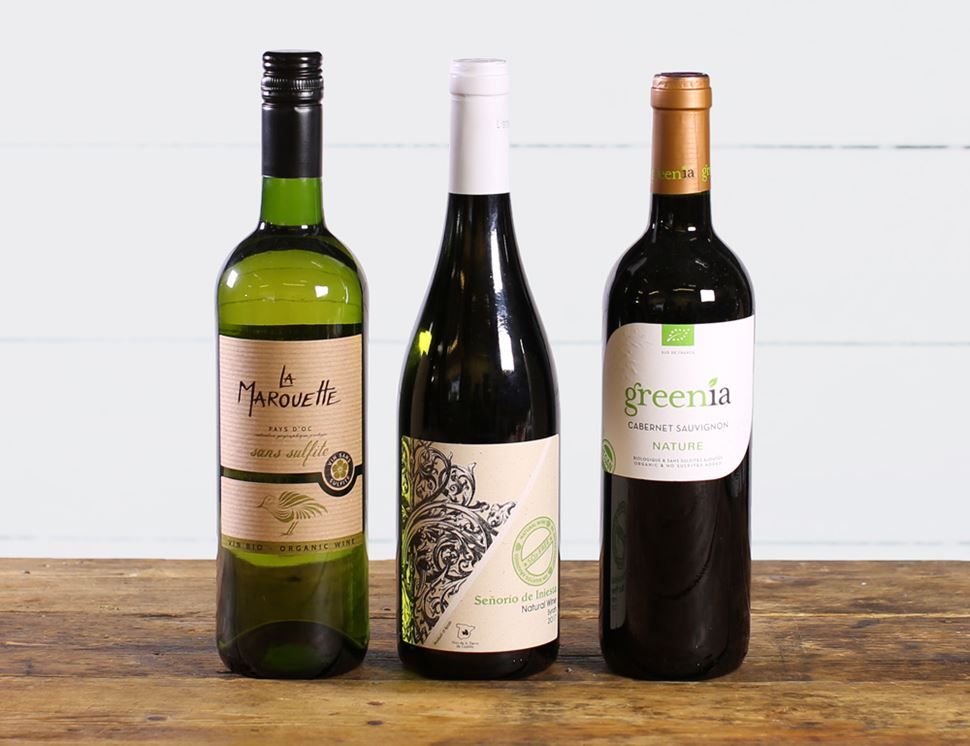It’s often easy to look at the lives of those in the world of wine through rosé-tinted glasses. But, as with any industry, there are changes and challenges aplenty. Honey Spencer, organic wine guru at Abel & Cole muses over her wine trends for 2019. From the resurgence of native varieties, to global warming, the rebirth of Spain to wine made with alternative fruits, here are her thoughts on things we are likely to see crop up in 2019.
2019 wine trends with Honey Spencer

1. Bursting the bubble of English Wine
There has never been a better time for English wine. 2018 is rumoured to be the best vintage on record, with many of the results ready for release this year. More wineries than ever before are sprouting up around the UK, many of which are moving away from sparkling wine production and into the creation of high quality and innovative still wines from varieties previously unplanted on UK soils. Expect to see a lot more variety in the kind of wines available from local producers on our shelves in 2019.
2. Looking further afield
There’s no pretty way to put it, wine is getting more expensive, particularly from the established regions and countries we know and love. Luckily, the future is bright for wine lovers willing to take a chance. Exciting developments in new, emerging wine regions are set to continue in 2019 with Central and Eastern European countries such as Hungary, Slovenia, and the Czech Republic entering the market with unique and brilliant offerings. My eyes are now on other nations to step out of the shadows and join the global wine revolution.
3. The rebirth of Spain
Admittedly, a large portion of my wine choices to date have been many a gutsy Rioja and glossy Albariño, but it’s been a real thrill to taste so many interesting new wines recently that mark a departure from the norm of Spanish wine production. From skin contact whites (aka orange wines), lively reds and trendy Pet Nats, Spain is quickly re-emerging as a country of stunning diversity. It also boasts the highest amount of organically certified vineyards in the World – a fact Abel & Cole and I take full advantage of!
4. The return of indigenous varieties
As the saying goes ‘variety is the spice of life’ and it appears science agrees too! As the threat of monoculture looms, many winegrowers and wine regions are moving to protect their native grape varieties. Sure, Pinot Noir is great, but it shouldn’t be planted everywhere, especially at the peril of a country’s indigenous vine species. Regions such as Corsica, Sicily, the Maule Valley in Chile and Khaketi in Georgia have been leading the way in ensuring the survival of their native varieties. So, here’s to a year of discovery… a glass of Rkatsiteli, anyone?
5. Non-grape fruit wines
A really exciting experience for me last year was a trip to Sweden to visit an organic producer who was making ‘wine’ with all sorts of fruits. Cloudberries, gooseberries, seabuckthorn, sloe berries and even veggies such as beetroot were all part of this producer’s innovation. I hope to see (and taste) plenty more of such delicious experiments in 2019. For those after an alcohol-free alternative, Abel & Cole’s Pri Secco (a zero ABV sparkler) is made from heritage pear varieties along with douglas fir tips and spices.

6. Lower alcohol wines
As more and more people are opting to drink less (we’re looking at you, millennials), we are seeing a lot more low ABV wines, beers and even spirits appear. De-alcoholising wine can be a tricky process and the challenge is to make these new products not only taste great, but also akin to drinking the real thing! Abel & Cole have recently added some great organic low abv wines to their collection.
7. Low and No Added SO2 Wines
Another big buzzword in the wine world right now is sulphites. Sulphites are naturally occurring element in wine so you really can’t have a wine that contains no sulphites at all. Winemakers can choose not to add any sulphur to their wine but many choose to for its antioxidant and microbial properties, protecting the finished product from spoilage. But as with all walks of life, you can have too much of a good thing. In recent decades, excessive use of SO2 in winemaking has been criticised for covering up the use of sub-standard fruit and haphazard winemaking. By adding less SO2 or abstaining from it altogether, winemakers not only have to ensure that the grapes in the vineyard are of the highest quality possible, they also result in creating a glimpse of something truly original and as nature intended.
8. Vegan-friendly wines
As more and more people convert to a vegan lifestyle, or explore vegan alternatives, the wine industry has been quick to respond. A large proportion of wines today are made with the use of proteins such as milk, egg whites and fish bladders which act as clarifying agents, removing any unwanted elements from the wine. Vegan-friendly wines are made without the use of any animal products and instead adopt the use of charcoal and clay as alternatives. I’m proud to say Abel and Cole has a very wide and ever increasing range of vegetarian and vegan-friendly wines.
9. Preparing for global warming
Few are exempt from the perils of global warming, not least of all winegrowers, who are very vulnerable to even the slightest shifts in environment. Extreme hail in Burgundy in recent years has led to France permitting the use of hail nets in every region for the first time in history. Increased humidity risks vine disease and uneven ripening of grapes. And then there is the subject of grape plantings. Varieties planted in a particular place 100 years ago might have suited the climate then, but evidence is mounting that those varieties may no longer be suitable, resulting in a global migration of grapes as winegrowers re-learn which varieties to plant in their regions.
10. Wine lovers with open minds!
Overall, I hope 2019 will be the year that people take more risks with the kind of wines they choose, embracing unknown flavours, regions and varieties and being richly rewarded for doing so. Yes, wine is a historic industry, largely based on tradition and by all means this should be preserved. But for those who wish to innovate, that they are supported, and risk takers rewarded, because there’s a whole new World out there waiting to be discovered!



